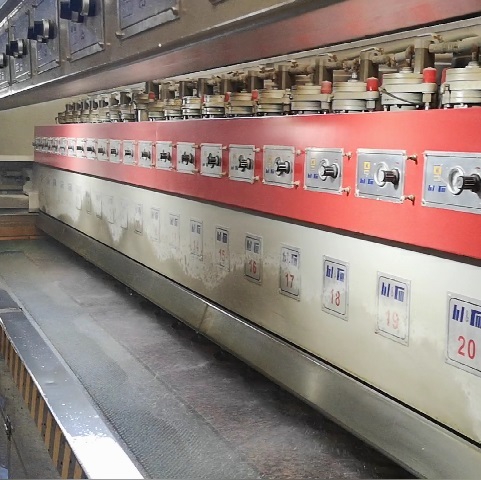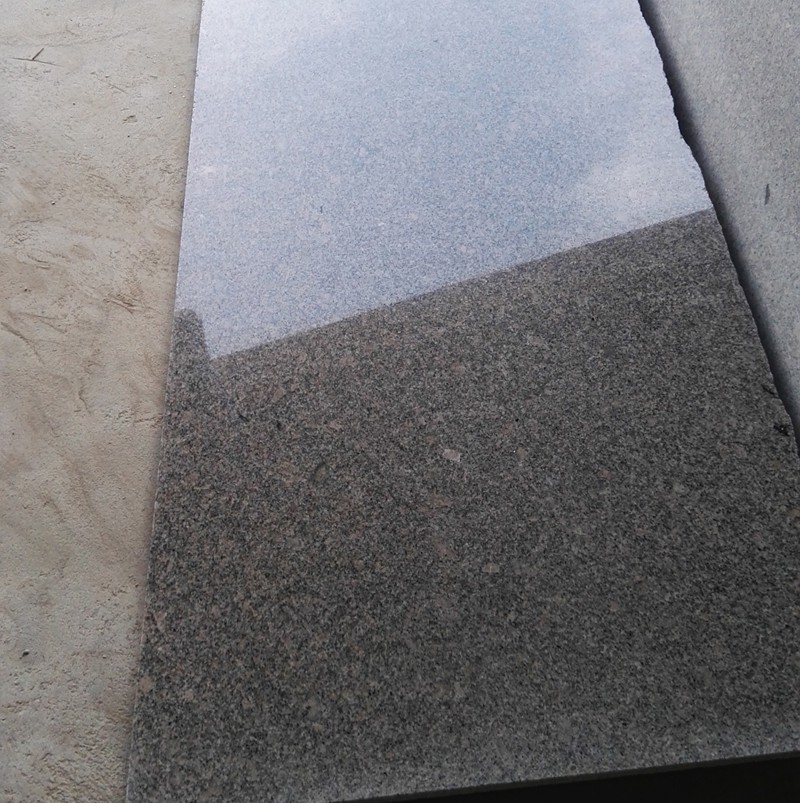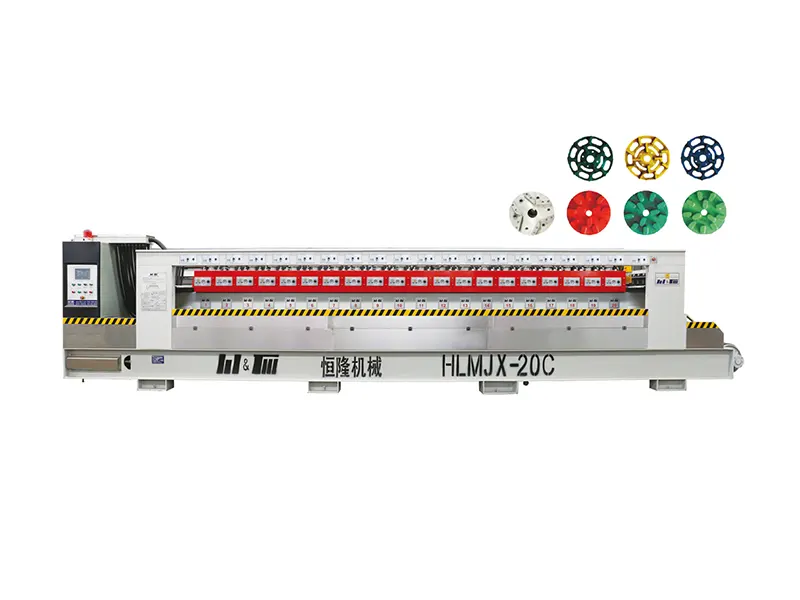Why Every Stone Fabricator Needs a Reliable Polishing Machine
Time:
Jul 27,2025
Why Every Stone Fabricator Needs a Reliable Polishing Machine
Table of Contents
- 1. Introduction
- 2. The Importance of a Reliable Polishing Machine
- 3. Enhancing Productivity in Stone Fabrication
- 4. Improving Quality and Craftsmanship
- 5. Cost Efficiency and Long-Term Savings
- 6. Key Features to Look for in a Polishing Machine
- 7. Trending Polishing Technologies for Stone Fabricators
- 8. Conclusion
- 9. Frequently Asked Questions
1. Introduction
The stone fabrication industry is constantly evolving, with increasing demands for quality and speed. For stone fabricators, **having a reliable polishing machine** is not just an option; it is a necessity. This machine plays a critical role in transforming rough stone into beautifully polished surfaces that meet clients' expectations. In this article, we will explore the numerous benefits that come with investing in a high-quality polishing machine, the features that should be considered, and the latest technologies that can enhance your fabrication process.
2. The Importance of a Reliable Polishing Machine
A reliable polishing machine is essential for several reasons. First, it ensures consistent quality in your finished products. Variability in polishing can lead to unsightly scratches, dull spots, and uneven surfaces, which can tarnish your reputation and lead to customer dissatisfaction. Second, an efficient machine minimizes manual labor, allowing your team to focus on other crucial aspects of stone fabrication.
Moreover, a good polishing machine will enhance the overall aesthetic appeal of the stone. Whether working with granite, marble, or quartz, a polished finish not only looks stunning but also maximizes the stone's durability. This leads to longer-lasting installations, which is a key selling point for potential clients.
3. Enhancing Productivity in Stone Fabrication
In the fast-paced world of stone fabrication, productivity is paramount. A reliable polishing machine can greatly enhance productivity in several ways:
3.1 Speed and Efficiency
Modern polishing machines are designed to work faster than their manual counterparts. They can cover larger surface areas in a fraction of the time, allowing fabricators to complete projects more quickly. This speed translates to shorter project timelines and, ultimately, increased profitability.
3.2 Consistency in Output
Using a polishing machine helps ensure that every piece of stone receives the same level of treatment. This consistency is vital in maintaining client trust and satisfaction. Clients expect uniformity in their installations, and a reliable polishing machine guarantees that every slab meets those expectations.
4. Improving Quality and Craftsmanship
Quality is the cornerstone of any successful stone fabrication business. Investing in a reliable polishing machine significantly contributes to improved craftsmanship.
4.1 Precision Polishing
High-quality polishing machines offer precise control over the polishing process. Fabricators can adjust the speed and pressure settings to achieve the desired finish. This level of precision allows for customizing the polish to suit different stone types and client preferences.
4.2 Reduction of Defects
Polishing machines reduce the occurrence of defects caused by human error. With automated processes, the likelihood of scratches or uneven surfaces is minimized. This results in a higher quality product that meets or exceeds industry standards.
5. Cost Efficiency and Long-Term Savings
While the initial investment in a reliable polishing machine may seem substantial, it offers significant cost efficiencies in the long run.
5.1 Decreased Labor Costs
By automating the polishing process, fabricators can reduce the number of hours spent on manual labor. This leads to lower labor costs, allowing businesses to allocate resources to other essential areas.
5.2 Longevity of Equipment
A quality polishing machine is built to last. Investing in a reliable machine means fewer breakdowns and maintenance issues, resulting in lower overall operational costs.
6. Key Features to Look for in a Polishing Machine
When selecting a polishing machine, consider the following key features to ensure you make a worthwhile investment:
6.1 Adjustable Speed Settings
Look for machines that offer variable speed settings to accommodate different types of stones and finishes.
6.2 Robust Build Quality
The machine should be made from durable materials that can withstand the rigors of daily use in a stone fabrication shop.
6.3 Ease of Use
A user-friendly interface with clear controls can help operators quickly learn how to use the machine effectively.
6.4 Portability
If your projects require moving from site to site, consider a lightweight and portable polishing machine.
6.5 Dust Extraction System
A built-in dust extraction system is essential for maintaining a clean workspace and improving air quality.
7. Trending Polishing Technologies for Stone Fabricators
As the industry evolves, so do the technologies used in polishing machines. Here are some of the latest trends to watch:
7.1 Automated Polishing Systems
Automation is becoming increasingly prevalent in stone fabrication. Automated polishing systems can perform multiple tasks with minimal human intervention, enhancing efficiency and consistency.
7.2 Water Recycling Systems
Sustainability is a growing concern in the industry. Machines with water recycling systems minimize waste and reduce environmental impact.
7.3 Smart Technology Integration
Smart technology allows for remote monitoring and control of polishing machines, providing real-time feedback and diagnostics.
8. Conclusion
In the stone fabrication industry, a reliable polishing machine is an indispensable asset. It enhances productivity, improves craftsmanship, and contributes to long-term cost savings. By investing in a high-quality polishing machine, fabricators can ensure consistent output, reduce defects, and ultimately elevate their business to new heights. As technology continues to advance, staying informed about the latest features and trends will help your business remain competitive and deliver exceptional results.
9. Frequently Asked Questions
1. What types of polishing machines are available for stone fabricators?
There are several types of polishing machines, including manual, semi-automated, and fully automated systems, each designed to suit different fabrication needs.
2. How do I maintain my polishing machine?
Regular maintenance includes cleaning, checking for wear and tear, and ensuring that all components are functioning correctly. Refer to the manufacturer's guidelines for specific maintenance instructions.
3. Can polishing machines be used for different types of stone?
Yes, many polishing machines are versatile and can be adjusted to work with various stone types, such as granite, marble, and quartz.
4. What are the safety precautions I should take when using a polishing machine?
Always wear appropriate safety gear, including goggles and masks. Ensure that the workspace is clean and free of hazards before operating the machine.
5. How can I choose the right polishing machine for my business?
Consider your specific needs, including the types of stones you work with, your budget, and the volume of work you handle. Research different models and compare features to make an informed decision.
RELATED NEWS








